Arabia, the Gulf, & the GCC Blog
The “Arabia, the Gulf, and the GCC” blog features insights and analysis from the National Council on U.S.-Arab Relations as well as information about the Council’s programs, projects, events, and activities. Founded in 1983, the National Council is a non-profit, non-governmental, educational organization dedicated to improving American awareness, knowledge, and understanding of the Arab region.

Yemen’s Houthi Takeover: Domestic and Regional Repercussions
Download as PDF Two weeks ago, the Zaidi Shiite-Houthi march to control the Yemeni state triumphantly arrived at
NCUSAR & Qatar Delegation Ring January 29, 2015 NASDAQ Stock Market Opening Bell
A delegation from the State of Qatar joined the National Council on U.S.-Arab Relations to ring the NASDAQ
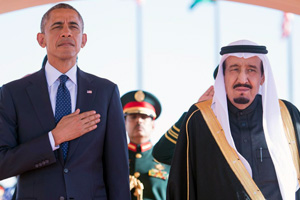
Obama’s Latest Visit to Riyadh in Context
Download as PDF President Barack Obama’s visit to Riyadh in conjunction with the post-funeral ceremonies for King Abdullah

NCUSAR Joins Qatar Delegation to Ring January 29, 2015 NASDAQ Stock Market Opening Bell
What: A delegation from the State of Qatar will join the National Council on U.S.-Arab Relations to visit
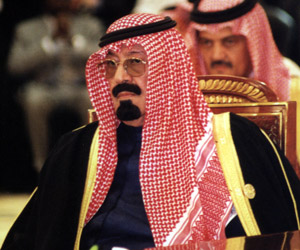
King Abdullah bin Abdulaziz Al Sa’ud: In Memoriam
King Abdullah bin Abdulaziz bin Abdulrahman Al Sa’ud passed away last week. Rahimahu Allah. Aged ninety, the monarch

Summer 2015 Intensive Language Program at The Arab-American Language Institute in Morocco
The National Council on U.S.-Arab Relations, in collaboration with The Arab-American Language Institute in Morocco (AALIM) for the
2014-15 Model Arab League Study Visit to Saudi Arabia Pictures
The National Council on U.S.-Arab Relations led a delegation of ten students and five university faculty members, all
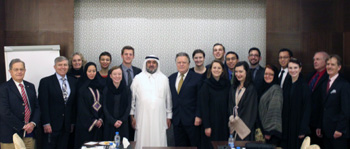
NCUSAR Signs Strategic Collaboration Agreement with Gulf Research Center
NATIONAL COUNCIL SIGNS MEMORANDUM OF UNDERSTANDING WITH GULF RESEARCH CENTER Organizations to Collaborate on Programs, Publications, and Activities
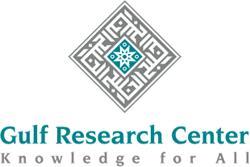
Gulf Research Center Publishes Reports on Saudi Arabia Business Sectors
The National Council on U.S.-Arab Relations is pleased to announce the availability of six important Gulf Research Center
2014 Model Arab League Study Visit to Qatar Pictures
The National Council on U.S.-Arab Relations led a delegation of ten students and five university faculty members, all
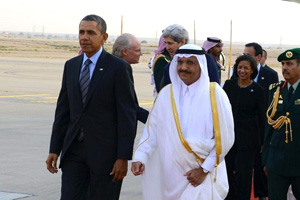
The ISIS Challenge and HRH Prince Khaled bin Bandar’s Visit to Washington: The Issues, The Implications
Download as PDF Strategic Saudi Arabian-U.S. cooperation continues. Another prominent Saudi Arabian leader – Chief of Saudi Arabia’s
Dr. John Duke Anthony Interview with The Lemonade Stand
On November 19, 2014, National Council on U.S.-Arab Relations Founding President & CEO Dr. John Duke Anthony appeared
